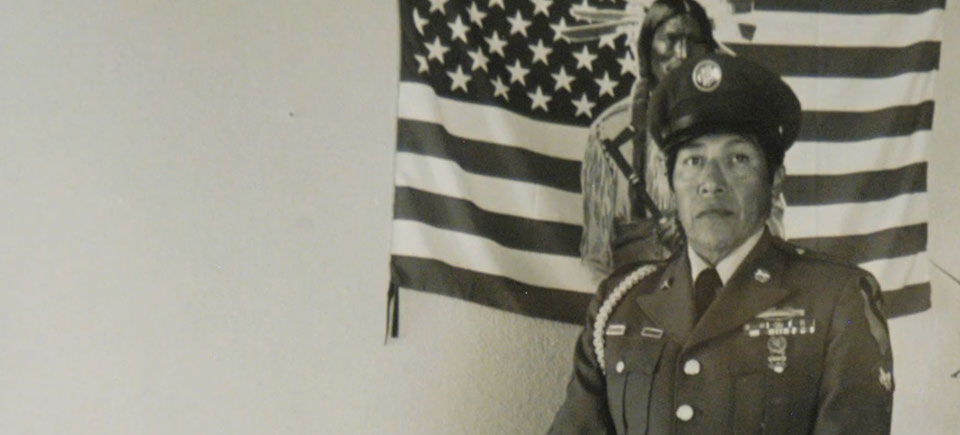What began as an independent study project on ethnic identity and American culture for Reynolds School graduate student Regina Revazova has turned into something greater than she ever expected. Her 30-minute documentary film on Ralph Burns, a 68-year-old Pyramid Lake Paiute elder, revered storyteller and native-language specialist, was selected to be used as part of the publicity for Burns' induction to the 2013 National Endowment for the Arts National Heritage Fellows. Burns is one of nine folk artists from around the U.S. being recognized, and the only award recipient from Nevada. The induction ceremony took place on Sept. 25, at the Library of Congress in Washington D.C.
When searching for a topic to cover, Revazova found herself intrigued by the Native American culture, its rich historical identity and language.
"As a foreigner I've always been fascinated by Native Americans because they are so unique in our world," Revazova, a Siberian with Georgian roots from Russia, said. "I found the phenomenon of their threatened culture and language interesting. Ralph's mission to preserve the Native way of life was fascinating to me."
For more than two decades, Burns has taught the Numu (Western Paiute) language to tribal students, local high school students, and community members, and developed a language curriculum to teach both Native American and non-Native American people. At the Pyramid Lake Paiute Museum and Cultural Center, Burns is the cultural resource specialist, serves as a resource for the Paiute language program, and is a frequent storyteller. Burns is also an accomplished traditional dancer who frequently leads the sacred circle powwow dances and has instructed groups at the Pyramid Lake Reservation and Reno-Sparks Indian Colony.
Howard Goldbaum, Reynolds School associate professor and Revazova's independent study advisor, said, "Regina is a very driven young woman. She allowed her journalist instinct to take her where she wanted to go and was able to identify a very interesting story line in Ralph. She went out to the reservation and worked hard to gain the tribe's trust and created a strong bond with them that resulted in this in-depth film."
Over the course of eight months Revazova shadowed Burns as he taught classes featuring the Numu language and shared traditional stories from his family and community members with other members of the tribe.
For decades Numu was prohibited from being spoken in some schools set up to assimilate Native American children, which resulted in the language fading.
"I could relate to Ralph's work because I saw similarities in the work he was doing to preserve his native culture and language and what was happening to my own language," she said. "My mother language is dying, too, and I can truly appreciate what Ralph is doing to educate tribal members."
When asked what it was like to work with Revazova, Burns said, "After I learned Regina's background, that she was from Siberia and understood how her people had been treated, I identified a similar connection with her and felt I could open up to her."
This film is special.
"The subject matter of the film is important because it is about a community's effort to prevent the loss of ancient traditions," Goldbaum said. "It's also a local story, a Nevada story, in that the Paiute people live on their ancestral homeland and can sense their forbearers presence. Regina captured all of this in the film."
Once the film was complete, the Pyramid Lake Paiute Museum staff organized a screening of the film at the Museum. Approximately 70 people attended, including folk life representatives, tribal dancers and musicians, University professors, and tribal members.
"I was amazed by the number of people at the screening," she said. "I never imagined that my film would mean so much to the tribe."
When asked how she grew from this experience, Revazova said, "I got out of my comfort zone, exposed myself to a new experience, advanced my filming skills and have become a richer person. The result was an immense, mind-blowing experience."
As Burns prepared for his induction to the National Endowment for the Arts National Heritage Fellows, he said, "I hope this film puts Regina in the spotlight. Her work has helped to preserve the Paiute language and culture and has opened people's eyes and broadened our reach into new audiences."












